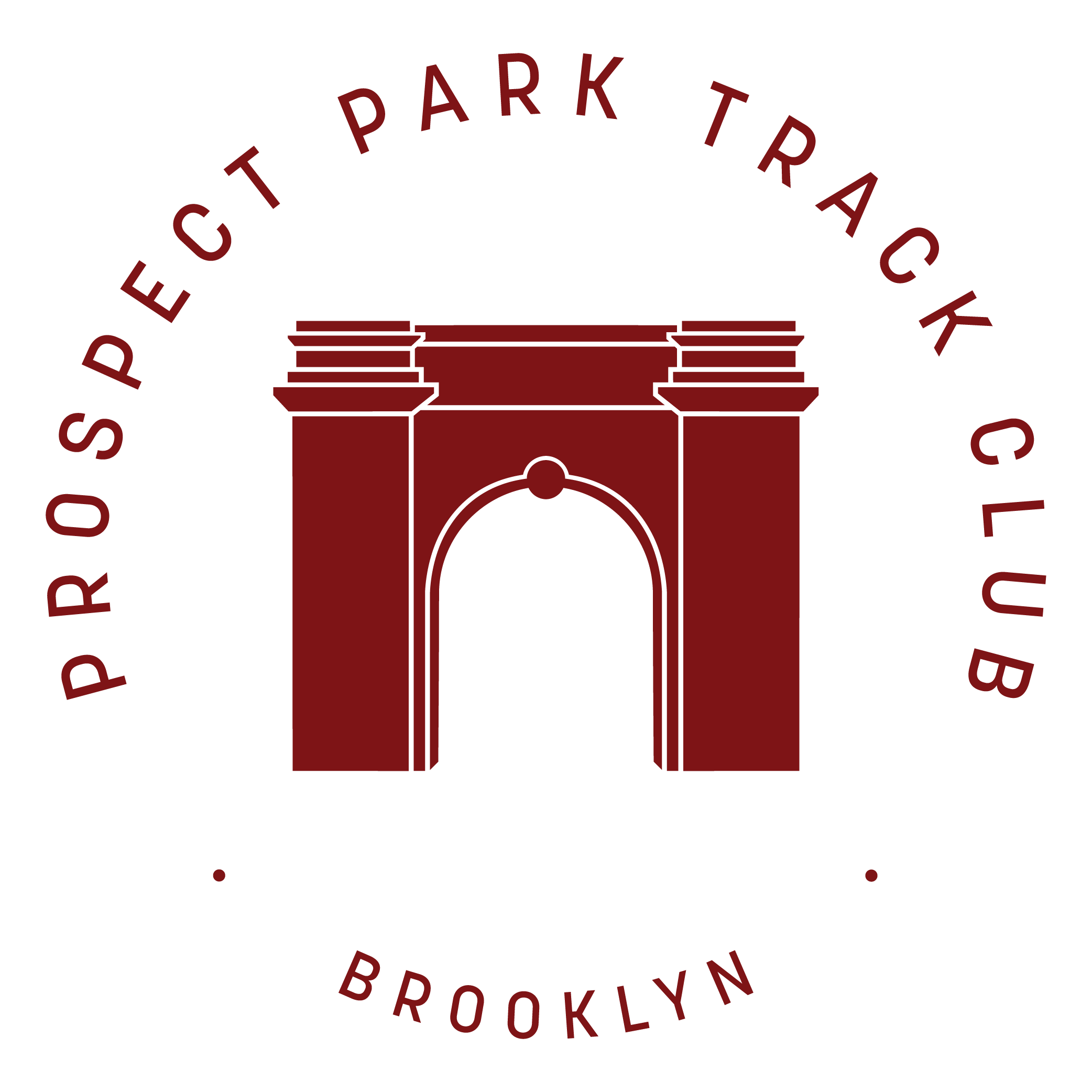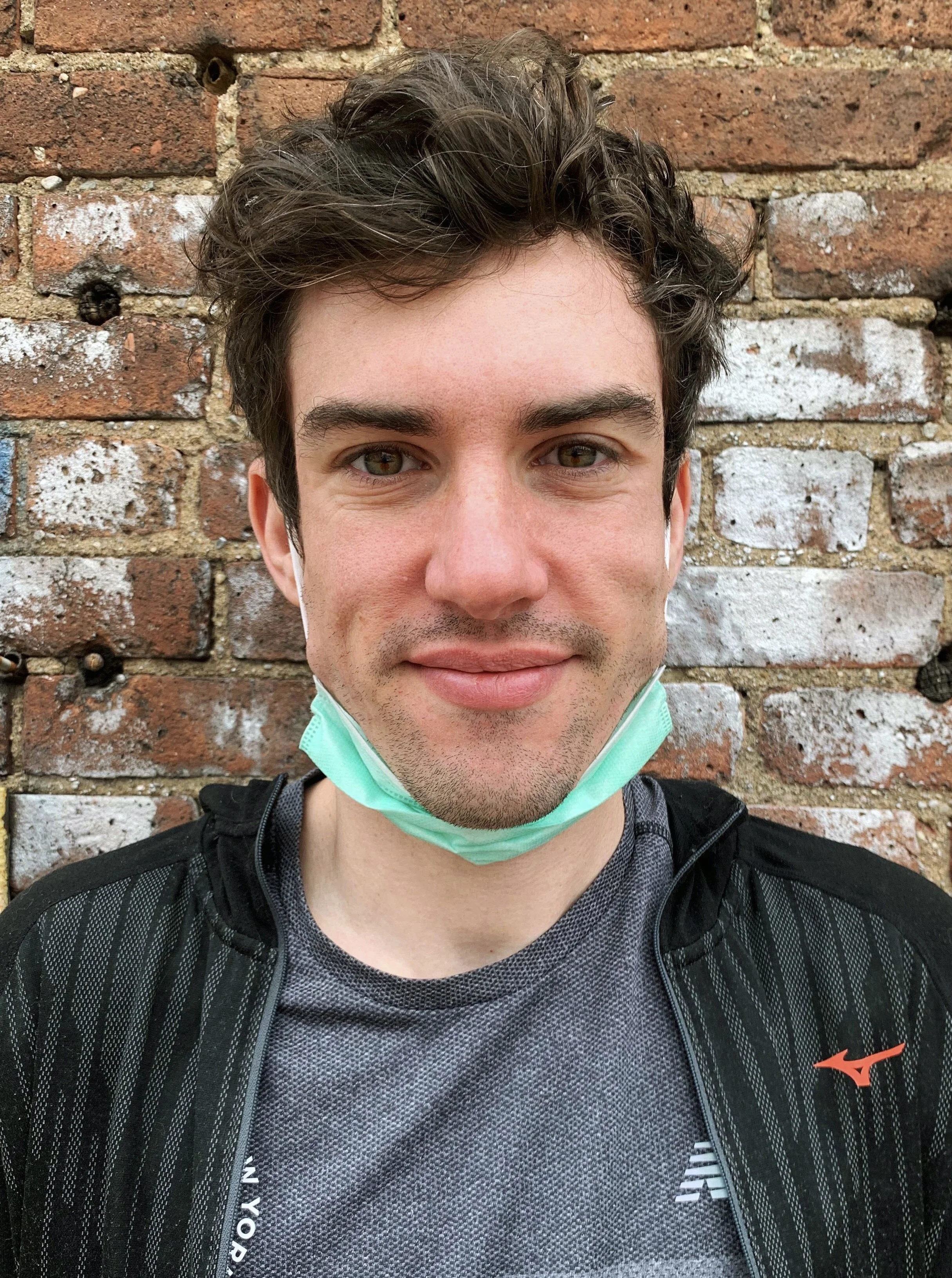A Decade of Non-Distance
An essay by John Vaghi
Long jump is a humbling event for anyone with tight hamstrings. Years later, John is still no closer to touching his toes when attempting any kind of stretch.
I was always someone who’d optimize my high school track meets by trying to do the least amount of running possible. An ideal day would look something like: long jump, triple jump, 100 meter dash, and the 4x100m relay.
Given those events, my teammates acknowledged me as a fellow “runner,” but never without the air quotes. I couldn’t blame them. I was all “fast-twitch or bust”. My legs could manage about two laps around the track before going into auto-shutdown mode, and it took multiple naps and at least six orders of Crazy Bread from the K-Mart Little Caesars to get them to agree to boot up again.
The distance intolerance didn’t improve. In college, my sophomore RA woke me at 6am the day before finals and insisted I run that morning in the Providence Half Marathon with him. Though my legs couldn’t comprehend anything longer than a 5k, whatever fitness remained from weekends playing intramural frisbee enabled me to at least “complete” the race, and my sprinting background even allowed for a finish-line kick that approximately one spectator thought was “neat.”
But a lone stranger’s compliment wasn’t enough to assuage what afterward felt like a shattered femur and an entire week of not being able to walk down stairs. My running mantras became “5k or less” and “save everything for the last quarter mile,” and my relationship with the sport started to resemble the worst kind of satire: Air quotes and cynicism. It’s been about 12 years since those days. I’m happy to report I have different mantras now.
Moving to NYC in the latter half of 2013, three years removed from undergrad, teased out in me a new sort of energy - one that demanded ambition, constant caffeination, and the wherewithal to negotiate tricky midtown crosswalks. But there was another thing that suddenly became apparent: I wanted to run again.
Whatever this energy was that drove people to work 80-hour weeks on the reg also bled out onto the streets, and created its own gravity. Wherever you looked, people were active and engaged in some form of fitness. There were races every weekend. And not those suburban “Turkey Trots,” with their 200 registrants and a half dozen laps around the Best Buy: We had Central Park and the New York City Marathon.
Every modicum of maturity and sophistication I possess now when it comes to running I owe to the NYC running community. I went from thinking appropriate 5k training was “3 miles twice a week as fast as possible” to having books worth of material composed of schedules and pace charts, complicated equations, and nomenclature that felt almost like learning a second language. I now crave PM interval sessions on the track in Red Hook. I can’t imagine life without the sanctity of the weekend long run.
Still, it’s funny that whenever I tell someone I enjoy running, their first question seems to be: “Cool, do you run marathons?” As if this is a prerequisite for being a runner (the sans air quotes kind); as if rote mileage corroborates credibility. It seemed that regardless of how seriously you’d trained for a lesser distance, it didn’t really matter unless you had that “26.2” sticker to slap on the bumper of the minivan you someday hoped to un-ironically own. It was classic imposter syndrome with all the trimmings.
But look, Merriam-Webster defines “runner” simply as “one that runs,” and that seems pretty spot on. Because when you’re sitting in your warm apartment on a cold day and that next episode of Friends is queued up, there’s this mental leap you have to make to give up that relative comfort and go lace up your running shoes. To me, anyone who’s ever made that leap is a runner. There is no fraud there. There are no air quotes. You establish a relationship between the soles of your shoes and the pavement, and your face and the bite of the crisp PM air, and you’re just as much a runner as anyone out there.
Finding PPTC reinforced that mindset. I walked into Good Shepherd's Hall Jan 1, 2020 with a box of chocolate Entenmann's ready to run Harry’s Handicap in what was to be my first event with the club. I placed the donuts next to a large pile of other Entenmann's products and was immediately struck by the energy in the room. This wasn’t some sloppy, hung-over post-party recovery session, this was the New Year’s main event.
I told my parents later that PPTC felt more like a neighborhood than merely a collection of people who liked to run. Running was something people talked about at Harry’s Handicap, but it wasn’t the only thing. There were stories that spanned decades, lively discussions about porta-potties, an incredible breadth of experiences and perspectives and community and wisdom. And it struck me that the energy in the room was different than the energy that had affected me when I first moved to NY. The energy pulsing through the city got me off the couch and onto the streets, but it wasn’t a sustainable energy. Eventually I would have other priorities. Eventually I would slow down.
That morning helped reconcile a fear in me that had begun to fester over the years: The fear that if I allowed running to occupy too much of my identity, one day I would wake up and not be able to do it anymore, and I would be lost.
PPTC helped demonstrate that one’s relationship with running was not a fixed thing; that it does evolve. Looking back at my own tenuous relationship with the sport, I can see clearly all the shapes it’s taken:
In high school I ran because all my friends and the girl I liked ran, I had great coaches, and because it was something to do.
In college I didn’t run, because my best running days seemed behind me and long jump had ruined my knees. It was college. There were all these other things going on that felt more relevant at the time (and the girl I liked did journalism).
In my early 20’s I occasionally ran because I needed to stay in shape and it turns out my knees weren’t ruined, I just had weak hips. I also discovered that whenever Taylor Swift came on, my pace shot through the roof. These were the waning days of the iPod Nano, and we had all learned what wonders a well-timed song could do for our running economy.
In my late 20’s I ran because proper training apparently does help you get better, because NYC really opens up if you start boycotting out-and-backs and there was still so much of the city I hadn’t seen yet, and because I found other spirited people to run with and to be inspired by.
Running in my 30’s has taken a new shape, too. I’m running because I’ve learned to love the run itself and not just the feeling you get when the run is over. I was totally floored the day I woke up and realized that all the cynicism of my youth seemed to have melted away. And as a certain pandemic took hold of the world, running became a kind of sanctuary to duck into during anxious times; one within which COVID had no power.
John in his running gear during the pandemic
During my first PPTC general meeting, when asked why I joined the club, I calculated it’d take about nine years to wrangle my thoughts into something resembling an adequate answer. So instead, I said some truism about moving to the neighborhood and looking for a community of like-minded runners. In retrospect, maybe that wasn’t all that bad of an answer. What’s better than nerding out with people over something you love, and with whom you have all these relatable experiences that span every gradient on the emotional spectrum?
Ultimately, deciding to join PPTC wasn’t quite like deciding to go out for a run. There was no mental leap required to want to belong to that kind of community–one endowed with that rare ability to recontextualize the limits and insecurities we inflict upon ourselves and reflect them back to us as virtues. It’s a community that ensures there’ll always be a place for us within it. Because even with an absurd surplus of convenience store donuts and temps just south of way too cold, Jan 1, 2020 in Good Shepherd's Hall was a morning that crackled with all the swagger of a sparkler on the 4th of July, one that would make the light emanating from even the best episode of Friends seem dull.
PPTC is a diverse and supportive team. We want to showcase and celebrate the diversity of our club and membership, and encourage everyone to share your stories with us.
Text and photos: John Vaghi
Edited by: Rachael DePalma, Linda S. Chan
Produced by: Linda S. Chan


